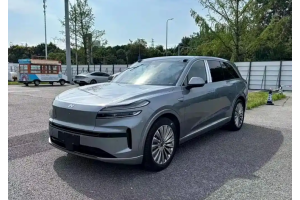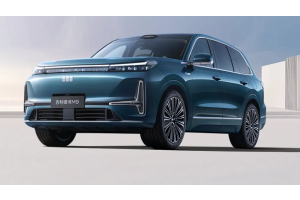Africa's Automotive Market and Used Car Import Policies

African Automotive Market Guide for Chinese Exporters
Market Overview
The African automotive market is experiencing steady growth, presenting significant opportunities for Chinese exporters. According to industry analysts, the continent's vehicle market is projected to reach 1.41 million units by 2024, expanding to 1.89 million units by 2029 with a compound annual growth rate of 6.04%.
Major global players including Volkswagen, Toyota, Renault, Hyundai, and Mercedes-Benz currently dominate the market. However, Chinese brands are making strategic inroads through local assembly partnerships and competitive pricing.
NEV Revolution in Africa
African nations are actively promoting new energy vehicles (NEVs). South Africa aims for 20% of new car sales to be electric by 2025, while Kenya has launched an "e-mobility" program to expand charging infrastructure. This shift creates prime opportunities for Chinese EV manufacturers.
Country-Specific Import Regulations & Market Conditions
Ethiopia
Market Profile: With an economy reliant on agriculture, Ethiopia depends heavily on vehicle imports. Chinese brands like BYD, Geely, and Sinotruk operate small assembly plants, though production remains limited. Remarkably, used vehicles constitute 85% of all auto imports, primarily arriving via Djibouti.
Policy Update: In February 2024, Ethiopia became the first country globally to ban all fossil fuel vehicle imports. EVs now enjoy preferential tariffs: 15% for fully assembled vehicles and just 5% for semi-knocked down (SKD) units.
Egypt
Market Profile: As a left-hand drive market, Egypt saw new car sales plummet 63.8% in 2023, creating vibrant used car activity. Imported used vehicles mainly originate from Dubai, Korea, and Europe.
Import Rules: Egypt only permits left-hand drive vehicles. For passenger cars, only hybrid or electric vehicles under three years old qualify, while commercial vehicles up to 10 years old are allowed. Notably, used EVs are exempt from tariffs but require CargoX registration.
Nigeria
Market Profile: Nigeria's auto market relies overwhelmingly on imports, with used vehicles accounting for 95% of transactions. Japanese brands dominate nearly 60% of segments from luxury sedans to SUVs.
Import Rules: Only left-hand drive vehicles under 12 years old may be imported. Taxes include: 20% customs duty, 15% National Automotive Council levy, 7.5% VAT, plus engine-size-based Import Adjustment Tax.
Angola
Market Profile: With minimal local manufacturing, Angola's improving economy drove significant auto sales growth in 2023. Chinese brands like Geely and Changan are gaining traction.
Import Rules: Allows light vehicles up to 6 years old and heavy transport up to 10 years. Pre-shipment inspection (PSI) is mandatory. Temporary imports require 40-45% of CIF value as deposit.
Ghana
Market Profile: Ghana's market runs on used imports primarily from the US, Japan, and Germany, while pushing local assembly and EV adoption.
Import Rules: Bans accident-damaged or salvaged vehicles. Only left-hand drive used cars under 10 years old with Compliance Certificates (CoC) qualify. Taxes include customs, VAT, and National Health Insurance levies.
Key Trends & Challenges
Infrastructure: While unreliable electricity persists, countries like South Africa and Kenya are making strides in EV charging networks.
Alternative Fuels: The CNG/LPG vehicle market is projected to reach $1.9 billion by 2030, growing at 6.78% annually.
Chinese Brands: BYD, Neta, and others are expanding through local production and distribution networks, particularly in the NEV segment.
Why Choose Chinese Vehicles for African Markets?
With competitive pricing, improving quality, and strong government support, Chinese vehicles offer African buyers exceptional value. TopUsedCars.com provides comprehensive export solutions including:
- Vehicle sourcing from certified Chinese manufacturers
- Customs clearance and documentation assistance
- Shipping logistics to major African ports
- Regulatory compliance guidance
For first-time buyers, our end-to-end services eliminate the complexities of international auto trade while ensuring compliance with each country's import regulations.








